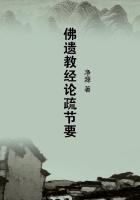Boots and saddles at daybreak!
Over the border, in Dixie, two videttes in gray trot briskly from out a leafy woodland, side by side, and looking with keen eyes right and left; one, erect, boyish, bronzed; the other, slouching, bearded, huge--the boy, Daniel Dean;the man, Rebel Jerry Dillon, one of the giant twins.
Fifty yards behind them emerges a single picket; after him come three more videttes, the same distance apart. Fifty yards behind the last rides "the advance"--a guard of twenty-five picked men. No commission among "Morgan's Men" was more eagerly sought than a place on that guard of hourly risk and honor. Behind it trot still three more videttes, at intervals of one hundred yards, and just that interval behind the last of these ride Morgan's Men, the flower of Kentucky's youth, in columns of fours--Colonel Hunt's regiment in advance, the colors borne by Renfrew the Silent in a brilliant Zouave jacket studded with buttons of red coral. In the rear rumble two Parrot guns, affectionately christened the "Bull Pups."Skirting the next woodland ran a cross-road. Down one way gallops Dan, and down the other lumbers Rebel Jerry, each two hundred yards. A cry rings from vidette to vidette behind them and back to the guard. Two horsemen spur from the "advance" and take the places of the last two videttes, while the videttes in front take and keep the original formation until the column passes that cross-road, when Dean and Dillon gallop up to their old places in the extreme front again. Far in front, and on both flanks, are scouting parties, miles away.
This was the way Morgan marched.
Yankees ahead! Not many, to be sure--no more numerous than two or three to one; so back fall the videttes and forward charges that advance guard like a thunderbolt, not troubling the column behind. Wild yells, a clattering of hoofs, the crack of pistol-shots, a wild flight, a merry chase, a few riderless horses gathered in from the fleeing Yankees, and the incident is over.
Ten miles more, and many hostile bayonets gleam ahead. A serious fight, this, perhaps--so back drops the advance, this time as a reserve; up gallops the column into single rank and dismounts, while the flank companies, deploying as skirmishers, cover the whole front, one man out of each set of fours and the corporals holding the horses in the rear. The "Bull Pups" bark and the Rebel yell rings as the line--the files two yards apart--"a long flexible line curving forward at each extremity"--slips forward at a half run. This time the Yankees charge.
From every point of that curving line pours a merciless fire, and the charging men in blue recoil--all but one. (War is full of grim humor.) On comes one lone Yankee, hatless, red-headed, pulling on his reins with might and main, his horse beyond control, and not one of the enemy shoot as he sweeps helplessly into their line. A huge rebel grabs his bridle-rein.
"I don't know whether to kill you now, "he says, with pretended ferocity, "or wait till the fight is over.""For God's sake, don't kill me at all!" shouts the Yankee. "I'm a dissipated character, and not prepared to die."Shots from the right flank and rear, and the line is thrown about like a rope.
But the main body of the Yankees is to the left.
"Left face! Double-quick!" is the ringing order, and, by magic, the line concentrates in a solid phalanx and sweeps forward.
This was the way Morgan fought.
And thus, marching and fighting, he went his triumphant way into the land of the enemy, without sabres, without artillery, without even the "Bull Pups,"sometimes--fighting infantry, cavalry, artillery with only muzzle-loading rifles, pistols, and shotguns; scattering Home Guards like turkeys; destroying railroads and bridges; taking towns and burning Government stores, and encompassed, usually, with forces treble his own.
This was what Morgan did on a raid, was what he had done, what he was starting out now to do again.
Darkness threatens, and the column halts to bivouac for the night on the very spot where, nearly a year before, Morgan's Men first joined Johnston's army, which, like a great, lean, hungry hawk, guarded the Southern border.
Daniel Dean was a war-worn veteran now. He could ride twenty hours out of the twenty-four; he could sleep in his saddle or anywhere but on picket duty, and there was no trick of the trade in camp, or on the march, that was not at his finger's end.
Fire first! Nobody had a match, the leaves were wet and the twigs soggy, but by some magic a tiny spark glows under some shadowy figure, bites at the twigs, snaps at the branches, and wraps a log in flames.
Water next! A tin cup rattles in a bucket, and another shadowy figure steals off into the darkness, with an instinct as unerring as the skill of a water-witch with a willow wand. The Yankees chose open fields for camps, but your rebel took to the woods. Each man and his chum picked a tree for a home, hung up canteens and spread blankets at the foot of it. Supper--Heavens, what luck--fresh beef! One man broils it on coals, pinning pieces of fat to it to make gravy; another roasts it on a forked stick, for Morgan carried no cooking utensils on a raid.
Here, one man made up bread in an oilcloth (and every Morgan's man had one soon after they were issued to the Federals); another worked up corn-meal into dough in the scooped-out half of a pumpkin; one baked bread on a flat rock, another on a board, while a third had twisted his dough around his ram-rod; if it were spring-time, a fourth might be fitting his into a cornshuck to roast in ashes. All this Dan Dean could do.














